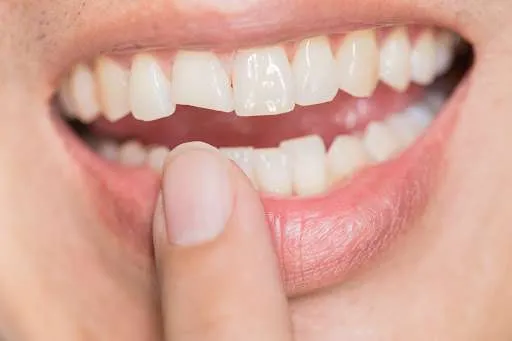Cracked Confidence: Responding to Chipped Teeth at Home
A chipped tooth can be a frustrating experience, affecting both your smile’s aesthetics and potentially causing discomfort. While visiting a dentist is always the recommended course of action for a definitive repair, there are some temporary solutions you can consider at home until you can get professional help. This guide explores the different approaches to managing a chipped tooth at home, emphasizes the importance of professional dental care, and offers a helpful FAQ section to address your concerns.
Understanding Chipped Teeth
A chipped tooth occurs when a small piece of the tooth enamel or dentin (the layer beneath the enamel) breaks off. Causes can vary:
- Biting into hard foods
- Accidental falls or blows to the face
- Using teeth for non-food purposes (e.g., chewing on fingernails)
The severity of a chipped tooth can range from a minor aesthetic concern to a more significant issue exposing sensitive dentin and causing discomfort.
At-Home Management: Temporary Solutions
It’s important to remember that at-home solutions for chipped teeth are temporary and shouldn’t replace professional dental care. Here are some options to consider:
-
Dental Wax: Available over-the-counter at pharmacies, dental wax provides a temporary covering for sharp edges of a chipped tooth. This can prevent irritation to your tongue or cheek and improve comfort while eating. When using dental wax, ensure you get the right size and follow the instructions for application.
-
Sugar-Free Chewing Gum: Softened sugar-free chewing gum can be used to fill a small chip temporarily. However, avoid aggressive chewing, and be aware that the gum might not adhere well and could dislodge easily.
-
Pain Relief: Over-the-counter pain relievers like ibuprofen or acetaminophen can help manage any discomfort caused by the chipped tooth, particularly if the chip exposes dentin.
Importance of Professional Dental Care
While at-home solutions can offer temporary relief, seeking professional dental care is crucial for a permanent and proper repair of a chipped tooth. Here’s why:
-
Diagnosis and Treatment: A dentist can assess the extent of the chip, determine if the dentin or pulp (innermost tooth layer) is exposed, and recommend the most suitable treatment. This might involve bonding (applying a tooth-colored resin to repair the chip), dental veneers (thin shells placed on the front surface of the tooth), or a crown (a cap that covers the entire tooth) depending on the severity of the chip.
-
Long-Term Protection: Professional repairs are designed to be durable and long-lasting, restoring the tooth’s functionality and aesthetics. At-home fixes are temporary and might not effectively protect the chipped area from further damage or bacteria infiltration.
-
Preserving Tooth Health: Early intervention by a dentist can prevent further complications. If the chip exposes the dentin or pulp, it can increase the risk of tooth sensitivity, infection, or even tooth death.
When to See a Dentist Immediately
In some cases, a chipped tooth requires immediate dental attention. Seek professional help if you experience:
- Severe pain
- Bleeding from the chipped area
- Sensitivity to hot or cold temperatures
- Signs of infection (swelling, redness, or pus around the tooth)
- Difficulty chewing or speaking
Preventing Chipped Teeth
Here are some tips to minimize the risk of chipping your teeth:
-
Maintain good oral hygiene: Brushing twice daily and flossing once daily removes plaque and bacteria that contribute to tooth decay, which can weaken teeth and make them more susceptible to chipping.
-
Eat a balanced diet: Include plenty of fruits and vegetables rich in vitamins and minerals that promote strong teeth.
-
Avoid using your teeth for non-food purposes: Don’t chew on hard objects like ice, fingernails, or pens.
-
Wear a mouthguard: If you participate in contact sports, wear a mouthguard to protect your teeth from impact.
FAQ on Chipped Teeth
Q: Can a chipped tooth heal on its own?
Unfortunately, chipped teeth cannot heal on their own. The enamel, the hard outer layer of the tooth, lacks living cells and cannot regenerate.
Q: How long can I wait to see a dentist after chipping a tooth?
If you experience no pain or discomfort, you can likely schedule a dental appointment within a reasonable timeframe. However, if you have any pain, sensitivity, or difficulty eating, seek professional help as soon as possible.
Q: What can I expect during a dental visit for a chipped tooth?
The dentist will examine your tooth, take X-rays if necessary, and discuss treatment options based on the severity of the chip.

